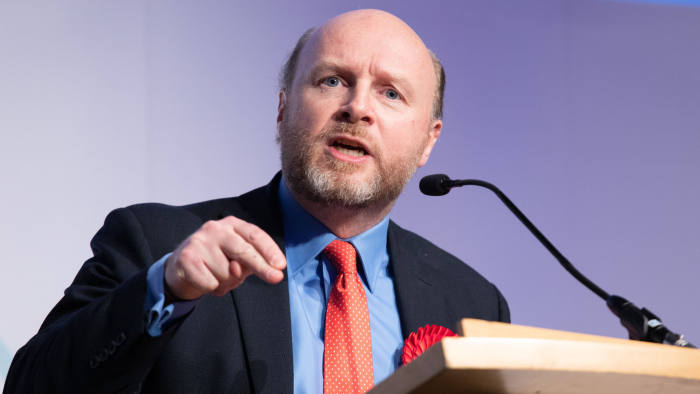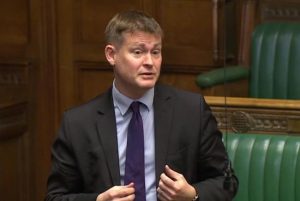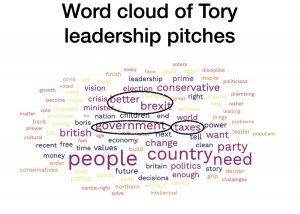After the tired Tory years, Keir Starmer has the opportunity to transform Britain.
The tide of ideas has turned. The tedious, lacklustre Tory leadership battle revealed one simple elemental truth: the intellectual energy is now with the Left. But as we know all too well, we’re not out to win an argument. We have to win an election. So it’s urgent now for Labour to transform our energy into ideas and our proposals into a project for power that will transform our country under our new King Charles III.
And that demands we understand what has changed since we lost office. Because unless we must grasp the sheer scale of the forces now re-shaping the country we aspire to govern, we won’t unite the coalition we need to win office or explain the big shifts we need to helm in office. Together these are the dimensions of a new project.
The Three Divides
Keir Starmer cannot and will not simply press the rewind button. He can’t and won’t because since 1997, three big new contradictions have emerged to divide our old coalition and the country.
- The globalisation project driven by tech and trade that both New Democrats and New Labour championed - from NAFTA, to doubling the size of the EU, to China’s admission to the WTO – helped foster economic growth, lower debt, lower consumer prices and helped generate the tax revenues that rebuilt schools and hospitals. It also helped lift a billion people out of poverty. But the gains of trade weren’t fairly shared, not least because new Technopolies emerged to dominate the commanding heights of the global economy, creating places left behind and a geography of discontent.
- An era of easy money, low interest rates and massive quantitive easing combined with highly deregulated labour markets and a failure to build enough homes has created a huge new inequality of wealth, between the secure – who went to university and/or owned homes and pensions – and a new ‘precariat’, vulnerable to the shifts of automation which may wipe out four-five times more jobs than the shutdown of the coal and steel industry out together.
- The revolution in higher education created huge new divides in culture and outlook between predominantly younger graduates who often moved to cluster in cities, and older, non-graduates who tended to stay put, creating both generational divides, culture wars and a gap between cities and towns.
These changes have divided the country between what Prof Jane Green calls the haves, will haves and won’t haves. Some people and some places have done well. But many have not. And that is why we have to now build a new consensus around levelling up one and all; creating a new equality of freedom and security which has been destroyed by the Tories.
But first we have to win an election. And these changes split apart Labour’s old coalition. Our vote is now ‘inefficiently distributed’ throughout the UK constituencies unlike the Tories who’ve have built a coalition amongst older, economically secure voters buttressed by low interest rates (which were good for older homeowners) and a huge £48 billion transfer into ‘tripled-locked’ pensions. This political economy of winners and losers was glued together by consumption-driven growth general, powered by consumption amongst older people.
Yet things are changing. The Tories have no clear direction to ‘deliver Brexit’, their mantra of ‘Levelling Up’ is hobbled by a split between the tax-cutting revanchist Thatcherites, the ‘Red Wallers’ who want big investment and those demanding we begin fiscal consolidation.
That divide is under even greater pressure as the Tories struggle to protect people from high inflation and a cost of living crisis, while public services buckle under pressure of new challenges from Covid backlog in the NHS to the rapidly changing nature of crime to the need to boost our defences. And so lost for direction, the Tories pick fights with our neighbours when we need alliances for security and trade and like all populists, they trade on the politics of divide and rule not the common good. So
they govern with gimmicks while our institutions come apart and we systemically fail to mobilise the investment needed to improve the productivity on which our standard of living depends. The Foreign Office couldn’t manage the evacuation of Afghanistan. The Treasury has lost billions to fraud. The Home Office can’t manage the small boats crisis. And the less said about Number 10, the better.
This combination of chaos and the cost of living crisis has holed the Tories as millions of economically insecure voters now switch to Labour. But to ‘seal the deal’ with voters, Labour must set out a project that delivers freedom and security for new and more dangerous times. This project has to take account of the ‘three races’ that will reshape the planet in the decade to come:
- The global race for leadership between the US and its allies, and China which will trigger a degree of deglobalisation, depress the rate of global growth and trade – and spark an arms race that already consumes $2 trillion a year, the highest figure in history. This race will unfold amidst the chaos created by pariah states like Russia, North Korea and Iran which will seek to embroil anarchy, aiming to disrupt and divide their opponents, along with a debt and food crisis that will trigger an explosion of fragility amongst poorer states in the developing world along with higher migration while organised, economic and cyber-crime continues to multiply.
- The ‘science race’ will become a sprint as both East and West seek to decouple from each other in the tech space, craft a new strategic autonomy and enhance their own technology edge by pouring huge new investments into industrial subsidies, from chips to AI. And in this race, we risk being left behind, shut out both EU’s Horizon programme and a US trade deal that won’t advance until we provide a ‘durable way forward’ on the Northern Ireland border.
- And of course, third, looming above the rest like the spectre at the feast is a ‘race against time’ as we shoot for net zero before extreme weather kills ever more of our neighbours.
These are seminal shifts. And so if progressives want to provide freedom and security for new times – just as Franklin Roosevelt and Clement Attlee did once before, we have to tackle four challenges:
- Political: we have to reclaim the core values of freedom and security and a reputation for economic management and unite a splintered coalition with an economic and cultural offer which resonates not only with the UK but England. The core of this coalition are the economically insecure working age non-graduates plus graduates.
- Economic: We have to shift up the trend rate of 16 17 growth by tackling endemic low productivity and put both economy and society on path to net zero carbon emissions. Ultimately we can’t increase the pace of social mobility unless we create a bigger supply of knowledge intensive jobs (across the economy).
- Distributional: Labour’s new political economy has to tackle the new extraordinary divides of wealth – in housing capital, human capital, pension capital, social capital – and rebuild social security for today’s labour market and aging society with an philosophy of active government that delivers universal child care, social care and health services shifted into prevention, personalised lifelong learning in part financed by the modernisation of the tax base to restore fairness with a tax code that reflects our moral code and the basic ideal that those lucky enough to do best, share more especially on their harvest from wealth.
- Global: we have to generate new alliances as the world divides, with stronger links to global science powers, investment in rebuilding NATO capabilities, supporting the new emerging security architecture in the Indo-Pacific, in space, in the Artic, in the field of Artifical Intelligence and reboot our ‘offer’ to the developing world, much of which, in Africa and Eurasia, abstained on the UN vote condemning Russia’s invasion of the Ukraine. At the core of this offer has to be better use of the Bretton Woods institutions to help tackle the food and debt crisis but nor can we ignore the crucial future challenge of building digital infrastructure.
Our solutions for this are very different to the Tories, who ultimately will always want to defund and roll back the institutions of our national life, leave everything to the market, allow the rich to cheat their taxes and divide and rule communities in order to stay in power. So this Tribune pamphlet spells out the divide between a tired Tory agenda of the past, and the new possibilities of tomorrow.
Let’s start with growth, where the Tories have created a low growth, consumer driven economy, fuelled by huge income transfers to older voters and high levels of personal debt for younger working families, struggling to make ends meet. After delivering what my friend Clive Efford calls a dog’s Brexit, the Tories admit they’ve failed. Kemi Badenoch confessed to the Times that ‘We have failed to capitalise on that election winning majority of 2019’ while Tom Tugendhat declares ‘The full advantages of Brexit are yet to be unleashed’.
Yet it’s very clear the Tories still believe they can cut their way to growth. Almost all the leadership candidates argued the answer was either more tax cuts or more austerity or both. None of them have anything to say about fair taxes: like cutting small business rates, raising taxes on digital giants to level the economic playing field or taxing capital income at the same rate as income tax as Arun Advani and Andy Summers propose.
None really mentioned science, industrial policy, manufacturing or Climate Change – apart from Suella Braverman, the new Home Secretary, who appears to want to exit the Paris Climate Agreement. As a result, none of them plan to match Labour’s plan to invest £28 billion a year in the race to net zero carbon emissions.
We know we need a very different model of growth which entails re-building and building new institutions, and stronger institutions at the level of nations, metro-areas and local councils.
This is now the divide: between a Labour offer to boost growth with a smart supply side strategy to mobilise innovation, rebuild what Marianna Mazzucato calls mission-driven institutions to help helm the transition to net zero. To this we must rewrite the rules of our economic institutions as Will Hutton explains, to help reconnect economic and productivity growth with wage growth through more purpose-driven companies. And as Steve Turner explains in detail, we must capitalise on the opportunity to ‘make our green future’ by seizing the opportunities before our eyes to become a global centre of clean, green manufacturing; a Green workshop of the world.
That must be backed by a fiscal policy that works for working families, as Jagjit Chadha explains, with transformed levels of public investment in physical, digital, human capital and NHS infrastructure. We need to stop resting on the Bank of England for growth and develop a fiscal policy that revolutionises productivity.
The choice is simple: between the Tories plan for slow growth versus a Labour plan for fast growth through climate security. Our Labour case is clear: an active state investing more in climate security helps us deliver faster growth, reindustrialisation and helps boost the self employed, especially if we back it back it with English devolution of industrial policy, high not low infrastructure and science investment, and tax cuts for small businesses delivered by abolishing business rates.
Active Government
The second big divide is on the role of government: between our approach of Active Government and the Tories philosophy of Austerity; an approach of shades that vary between ‘you’re on your own’ to ‘leave it to the market’.
Yet an active state is the only way to tackle climate change, turn the climate crisis into climate opportunity – and open those new opportunities to all. The active state helps us all work together. We believe in that because Labour is a ‘we party’. Unlike the Tories who are a me, me, me party.
How does that play out in policy? Kate Pickett, Richard Wilkinson, Michael Marmot, Clare McNeill and Will Snell provide the answers. Patiently they explain how unequal countries are unhappy countries. Perhaps the statistic that says it all, is Michael Marmot’s revelation that life expectancy here, in the world’s sixth biggest economy is now actually FALLING in our most deprived communities. Yet as Will Snell explains we can win an argument for the ‘fair necessities’ of life because the British people fundamentally believe in fairness as the best guarantor of a meaningful freedom in life for us all. And as Clare McNeil explains, by uniting our social and economic agenda with a social investment agenda we can show how we can grow the country faster – and deliver on levelling up.
For example, we believe in investing in the future not shortchanging the next generation. We’re the party of education, education, education while the Tories are shortchanging our kids. The gap between public and private education would now take £55 billion to fix. The Tories refused to fund the £15 billion catch up plan their own advisor said was needed. Labour has a different plan. For example, ending private school tax breaks and use the money to help fund £15 billion for our kids and grandkids to catch up.
What’s more we believe in high quality universal public services not the Tories philosophy of ‘You’re on your own’. Labour built social security. But we know we now need to rebuild it. We need new things from a stronger universal system social security for the 21st century. Like help with saving, child care, social care, retraining, universal second pensions – and getting a home you can afford to call your own. It’s what you might call ‘universal basic capital’.
Delivering on this will require us to put fairness back at the heart of active government. Never again can we allow men like multimillionaire Rishi Sunak to actually boast of how he took from poor communities to give to the rich.
Strong Communities
Finally, the Tories are ironically divided by culture wars. It was almost hilarious to hear Rishi Sunak declare ‘We’ve had enough of division. Politics at its best is a unifying endeavour’ just as Kemi Badenoch took aim at some mythical ‘entrenched opposition from a cultural establishment’.
The dividing line here is simple; between Labour which wants strong communities and the Tories preference for divided communities. Their nasty divisive politics pits neighbour against neighbour – and weakens the Union. By contrast, we believe communities are stronger, safer and nicer places to live when we invest in active communities.
That’s why Labour will transforming policing for the 21st century as Rick Nye explains, investing in what Jess Prendergast call ‘attachment economics’ in every community and crucially, revising our constitution for new times by putting power in people’s hands. The sad end of the Elizabethan era came with a new prime minister who recommitted to Tory notions that have been tried and failed. The way is now open to a Starmer project that will transform our country, not merely for some, but for all.





